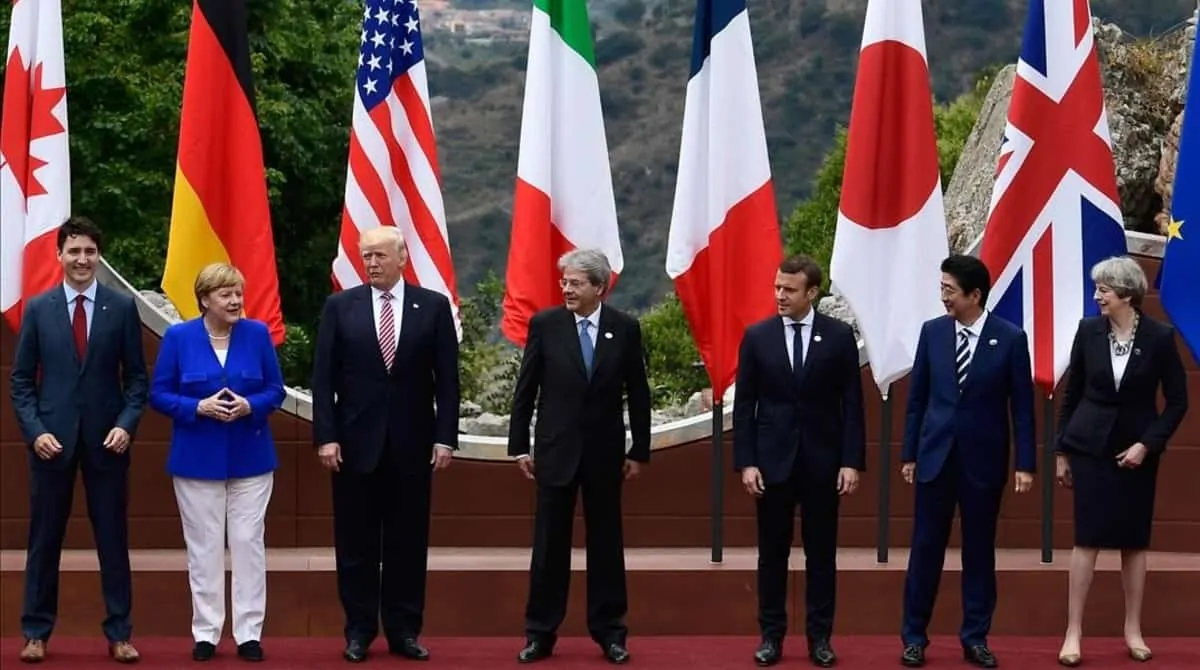The G7, or Group of Seven, has decided to prevent the approval and launch of Facebook's Libra project until it complies with all required regulations regarding money laundering, consumer protection and other regulations.
The draft stablecoin from Facebook, known as Pound, has been in the spotlight of legislators and regulators around the world since its announcement in 2019. Therefore, this project has not had very significant progress since it was announced, since for regulators it does not guarantee compliance with AML regulations and other legislation worldwide. Since David Marcus, co-creator of the Libra project, announced its plans to launch a "cryptocurrency", which later became a stablecoin, regulators in the United States and Europe showed great concern and rejection.
Facebook's track record as a social media giant with several serious failures and mistakes in handling its users' private data led regulators to oppose the project. If the social media giant cannot guarantee the privacy of its millions of users' personal data, how will it guarantee the privacy of financial and banking information? Its vulnerable security and access control policies brought this question to the hearts of lawmakers and it seems that concerns are still there.
El Spanish President Pedro Sánchez’s announcement The G7, made up of the Central Banks and Finance Ministries of the United States, Canada, Japan, Germany, France, Italy and the United Kingdom, makes clear the lack of confidence that exists in relation to stablecoins such as Libra. Thus, the intentions of this group are to prevent the launch of the project until it complies with a complete regulatory environment that guarantees the security, protection and integrity of users.
It may interest you: Facebook, data leaks and digital currencies
Appropriate regulation for a potential threat
Stablecoin projects, such as Libra, will not circulate until they are established and the appropriate regulations are met, the G7 argues. So there is no doubt that, although Libra is not mentioned directly, this is one of the most worrying stablecoin projects and continues to be seen as a potential threat in the cold eyes of regulators and legislators.
“The G7 continues to maintain that no global stablecoin project should begin operations until relevant legal, regulatory and oversight requirements are adequately addressed through appropriate design and adherence to applicable standards.”
The group believes that the implementation of digital payment systems based on new technologies represents a significant step forward for the development of financial services, reducing inefficiencies and costs and, in general, providing a better quality of service for users. However, the group also believes that digital service systems must comply with appropriate regulations to ensure compliance with legislation, as well as guarantee consumer protection, privacy, financial stability and much more.
The G7 believes that without proper regulation, stablecoins, such as Facebook's Libra project, can lend themselves to many financial crimes such as money laundering and other illicit activities such as terrorist financing and the proliferation of illegal weapons, which would undoubtedly compromise and undermine the integrity of markets, the governance of nations and legal security in general.
Risks to global financial and legal stability
It is no exaggeration to say that private stablecoin projects such as Libra threaten financial stability and legal security worldwide. With special emphasis on this project, which presents itself as a global multi-currency and whose issuer maintains more than 2 billion users on its social network, Libra could become the main enemy of nations, their monetary sovereignty and their financial systems due to its colossal size and scope. But, above all, due to the unethical practices carried out by the company behind its development, Facebook.
Although perhaps few have a deep knowledge of how Facebook handles its data and private information, the company cannot hide the fact that it has been involved in several scandals due to the particularity of its practices, which have nothing to do with respect and privacy. Facebook itself Mark Zuckerberg, creator of Facebook, sent a letter to the United States Senate where it acknowledges that it has sold its users' data to software and application developers as part of its digital advertising and marketing campaigns and even acknowledges that it monitors both said users and those who do not have an official account on its platform.
These “mistakes” have cost the platform credibility and trust in the eyes of regulators, who are not opposed to this launch for nothing. Even the crypto community itself, which generally supports the launch of new technological projects, expressed concern about Libra’s announcement.
Need for clear regulations
Regulations are being adopted or the need to regulate stablecoins globally is being actively debated in the world's major economies as a way to avoid risks to the financial stability of their nations. The G-20 presented a report in April where it indicates the need to establish these regulations on stablecoins.
For their part, other nations are actively responding to the possible issuance of this stablecoin with the announcement of their own digital currencies. CBDC. A way that is undoubtedly effective for nations like China, Japan, South Korea and Europe to deal with the potential risks posed by stablecoins from private companies like Facebook.
Continue reading: Novi, the new name adopted by Facebook's Calibra project




